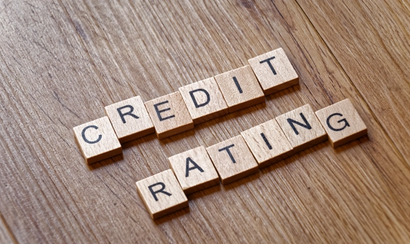Cash-Out Refinance Vs. Home Equity Loan: How to Choose
Written by:
Marianne Hayes
Marianne Hayes
Personal Finance Writer
Marianne Hayes is a contributing writer for Own Up. She has been covering personal finance and home ownership for over a decade.
See full bio
Fact Checked by:
Mike Tassone
Mike is a Co-Founder and Chief Operating Officer of Own Up. He has expertise in all areas of residential lending, having led operations for a top 40 lender in the United States.
See full bio

Fast Links
- What Is a Cash-Out Refinance?
- How Much Can I Borrow With a Cash-Out Refinance?
- Pros and Cons of a Cash-Out Refinance
- What Is a Home Equity Loan?
- How Much Can I Borrow With a Home Equity Loan?
- Pros and Cons of a Home Equity Loan
- Key Differences Between Cash-Out Refinance and Home Equity Loans
- Factors to Consider When Choosing
- Alternative Home Financing Options to Consider
- The Bottom Line
If you're a homeowner, the equity you've built in your home can be one of your greatest assets. It can provide a lump sum of cash to cover all sorts of expenses—whether that's debt, medical bills, a home improvement project or home repairs, or even college tuition.
A cash-out refinance or a home equity loan are two different loan options that can allow you to convert your equity into cash. But they work a little differently, and each one has important pros and cons to consider. The right option for you will depend on your needs and financial situation.
What Is a Cash-Out Refinance?
A "cash-out refi" is a unique way to refinance your mortgage that results in cash back to the borrower. Like a regular refinance, it involves taking out a new home loan. That means you'll have a new loan amount, interest rate and monthly mortgage payment—and hopefully some extra cash to boot.
But what makes a cash-out refinance different is that your new loan amount can be larger than your original mortgage. You'll use the proceeds from the new loan to pay off your old mortgage—the leftover cash is then yours to use however you like. You'll repay your new home loan through regular monthly payments.
How Much Can I Borrow With a Cash-Out Refinance?
The amount you can borrow with a cash-out refinance will depend on how much equity you have in your home. This represents the amount of your home that you own outright. To calculate it, you'll take your home's current value and subtract the amount you owe on your mortgage.
For example, if your home gets appraised for $450,000 and your mortgage balance is $250,000, you have $200,000 in home equity. With a cash-out refinance, you can typically borrow up to 80% of your home's current market value.
Pros and Cons of a Cash-Out Refinance
Before deciding to refinance your home with a cash-out refinance loan, consider the pros and cons:
Pros of a Cash-Out Refinance
- It can help you cover large expenses: If you've got a good amount of home equity, which may be the case if the value of your home has increased since you bought it, a cash-out refi could unlock a large cash windfall. And you can use those funds for virtually any reason.
- You'll have one loan payment: If you use a traditional loan, credit card or other lines of credit to access cash or credit, you'll add an extra monthly payment to your budget. But a cash-out refinance rolls the borrowed amount into your regular mortgage payment.
Cons of a Cash-Out Refinance
- You'll have to pay closing costs: The amount varies by lender and your personal financial situation, but can range from 2% to almost 6%, according to Experian. Let's say your new mortgage is worth $500,000 and your closing costs equal 3%. That works out to $15,000. You can either pay that amount upfront or roll the costs into your loan.
- You'll reduce your home equity: Your home equity will increase with every mortgage payment you make, but borrowing against your equity will reduce your ownership stake. If you run into a financial emergency in the future, your access to funds may be limited.
- You may not end up with a lower interest rate: Depending on a variety of factors, including market conditions, your credit profile, and the interest rate on your original loan, you may not end up with a more favorable interest rate on your mortgage.
- You can expect your mortgage payment to increase: A cash-out refinance can result in a larger mortgage than you had before. If this is the case, you can expect your monthly payment to go up. You'll feel this even more if your new interest rate is higher than what you had on your original loan. Own Up's cash-out refinance calculator can help you estimate your costs.
What Is a Home Equity Loan?
A home equity loan offers a different way to borrow against your equity that does not involve mortgage refinancing. You'll keep your current mortgage, and make your primary mortgage payment as usual, but you'll also take out a new loan, which is sometimes called a second mortgage.
You can use your loan proceeds to cover all types of expenses—from starting a new business to replacing your roof. You'll then repay your home equity loan through regular monthly payments.
How Much Can I Borrow With a Home Equity Loan?
Like a cash-out refinance, the amount you can borrow will depend on how much home equity you have. Generally speaking, most lenders allow homeowners to borrow up to 80% to 90% of the current property value—minus their outstanding loan balance.
It may also be possible to take out multiple home equity loans on a single property. This is less than ideal, but could provide much-needed funds if you experience a financial emergency.
Funds you receive from a home equity loan or cash-out refinance won't count as taxable income. What's more, you may be able to deduct your interest payments and use the money to make home improvements that increase your property value.
Pros and Cons of a Home Equity Loan
A home equity loan can be a good choice if you’re looking to maintain the interest rate on your original mortgage and are looking for a bit more cash. Keep reading to learn more about the pros and cons of home equity loans.
Pros of a Home Equity Loan
- It keeps your current mortgage loan intact: This can be beneficial if you have a low interest rate on your original mortgage loan and don't want to refinance to a higher rate.
- It might provide a larger loan than a cash-out refinance: You may be able to borrow up to 10% more with a home equity loan, depending on your level of equity, credit score, income, debt and home value.
- Home equity loan rates are often cheaper than other financing options: While home equity loan interest rates are usually a bit higher than regular mortgage rates, they're still much lower than credit card rates. As of Q2 of 2025, the average credit card APR was 22.25%, according to the Federal Reserve.
Cons of a Home Equity Loan
- Your home serves as collateral: Just like a cash-out refi mortgage, your home will collateralize the loan. That means that if you default on your payments, your lender could foreclose on your home.
- You'll have a new loan with a separate payment: Taking on a new monthly payment could strain your budget. You'll also have less income to put toward other financial goals.
- Closing costs apply: Similar to cash-out loans, home equity loans come with closing costs. That could significantly increase the total cost of your loan. You might choose to roll these costs into your loan, but going this route means that you'll pay interest on your closing costs.
Key Differences Between Cash-Out Refinance and Home Equity Loans
Home equity loans and cash-out refinance loans both allow you to borrow against the equity you've built in your home, but they aren't the same thing. There may be differences in interest rates, loan terms and approval requirements.
Below are some key differences to consider before making any moves:
- Interest rates: Rates on cash-out refis are typically lower than home equity loan rates.
- Loan terms: Home equity loans tend to have shorter mortgage terms—generally anywhere from 5- to 30-year terms. That means you'll have less time to repay the balance. Cash-out refi terms usually last up to 30 years.
- Loan amounts: You might be able to borrow more with a home equity loan than a cash-out refinance.
- Equity requirements: To qualify for a cash-out refinance, you'll likely need to have at least 20% equity in your home. It may be possible to get a home equity loan with as little as 15%.
Factors to Consider When Choosing
You'll want to look at the big picture before choosing between a cash-out refinance or a home equity loan. Your financial situation will likely play an important role. Below are some details to keep in mind:
- Your current mortgage rate and terms: If you have a favorable interest rate on your current mortgage, cash-out refinancing could lead to a higher rate. It may also change your loan term. In this case, a home equity loan might be a better fit.
- Your credit score: Mortgage lenders have minimum credit score requirements. The stronger your credit score, the more likely you are to qualify for a competitive interest rate—whether you're seeking a home equity loan or a cash-out refinance. Improving your credit history before applying could lead to long-term savings. That involves making on-time payments and paying down high-interest debt.
- Your financial situation: Can your budget handle a higher mortgage payment? Or a second mortgage in the form of a home equity loan? These are important questions to ask—if you struggle to make your payments, you risk losing your home. You'll also want to consider your long-term financial goals. Your lender will also take a look at your financial picture, including your debt-to-income ratio.
- Your loan purpose and amount needed: If you need a relatively small amount of money, a home equity loan may be a better option than restructuring your primary mortgage. You could also opt for a shorter repayment term without affecting your original home loan. On the flip side, if you need a large cash advance and have sufficient home equity, a cash-out refinance might make more sense—especially if you can get a lower interest rate.
- The current value of your home: If your property value has increased since you purchased your home, you may have more home equity than you think—and that can increase your borrowing power. Getting a professional home appraisal can help you better understand your position.
Alternative Home Financing Options to Consider
If you decide that neither option is right for you, you can explore the following funding alternatives.
Home Equity Line of Credit (HELOC)
Home Equity Lines of Credit—or HELOCs—also allow you to borrow against your home equity. But instead of providing a lump-sum payment, a HELOC offers a line of credit that you can draw on as needed—sort of like a credit card. You can borrow up to your limit for a specified period of time (known as the draw period). During this time, your lender may require interest-only payments.
When the draw period ends, you'll no longer be able to withdraw funds. The HELOC will then move into the repayment period and you'll begin paying back your principal balance, plus interest. HELOCs provide flexibility and can give you more control over how much you borrow. However, it’s important to note these may come with adjustable interest rates.
Personal Loan
A personal loan isn't connected to your home equity, and there's no draw period since it isn't a line of credit. It provides a lump sum of cash upfront, which you'll then repay over time—typically with a fixed interest rate and set monthly payment. Personal loans are unsecured, which means there's no collateral attached to it. That means you can expect higher interest rates. Some personal loans have rates as high as 35.99%. Your rate will ultimately depend on your lender, credit score, income and debt load.
Building Your Emergency Fund
In an ideal world, you'll have cash on hand to cover surprise expenses. That's the idea behind an emergency fund. The rule of thumb is to save at least three to six months' worth of living expenses. If an unexpected financial situation arises—like surprise medical bills, college expenses or job loss—you can dip into those cash reserves as needed. Keeping that money in a high-yield savings account can also allow you to earn interest.
The Bottom Line
Home equity loans and cash-out refinancing loans offer two different ways to convert home equity into cash—and they each have unique benefits for homeowners. But they're different when it comes to loan terms, borrowing limits and equity requirements. A cash-out refinance involves taking out an entirely new mortgage, while a home equity loan is akin to a second mortgage.
If you're not sure which one is right for you, consider working with a financial professional who can help you weigh the pros and cons of each option. You'll want to consider your financial situation and short- and long-term financial goals before making a decision.


